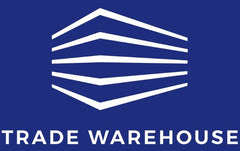Lindab® The eco-friendly steel rainwater system
Lindab® - The eco-friendly steel rainwater system
Jessica Benett, Marketing Team

When installing your gutters and downpipes, it makes sense to choose a value for money system and one that won’t harm the environment - not just now, but for the lifecycle of the system. Many choose plastic for the low price; but is it really the best low-cost solution?
Here, with a nod towards sustainability, we answer a few common rainwater-related questions and take a peek at the eco-credentials of some common UK gutter and rainwater choices including aluminum, plastic, steel and cast iron.


1. What are the disadvantages of plastic gutters?
Thermal Movement: In the UK, black plastic guttering can be seen on many new-build housing schemes. While it is considered a cheap option, there are disadvantages, mainly that plastic is prone to thermal movement and can turn brittle from UV exposure, often requiring replacement in a few years. Not to mention the damage leaking downpipes can cause to walls and brickwork. The old plastic guttering is not biodegradable or recyclable and will probably end up in landfill.
Unfriendly Production process: The manufacturing process of PVC (PolyVinyl Chloride) is a complex industrial process involving various toxic chemicals, including plasticizers and heavy metals such as lead and cadmium, both very harmful to humans and the environment.
Harmful Chemicals: In its normal state, the PVC used for gutters and downpipes is safe to handle, however if heat is applied, toxic chemicals and harmful fumes are released. Vinyl Chloride, the core chemical in the product, is a known carcinogen and should be avoided. Even time-related ageing of the PVC gutters products slowly release the inherent chemicals into the atmosphere, meaning PVC is not an environmentally sustainable material.



Cracks and Snaps: With regards to practicality, in comparison to metal guttering, an advantage of PVC plastic gutters is that they will not dent when hit with a minor force. However, if hit hard they will break, and once cracked they become ineffective (with hairline cracks often difficult to see). The first tell-tale sign is damp walls, moss, or drips. Continued exposure to UV light can cause joints to become loose, leading to gutter leaks.
In summary, once considered over the life span of a property black PVC plastic guttering might well prove a more expensive option.
Are Aluminium gutters better than galvanised steel gutters ?
One shared benefit of aluminium and steel rainwater components, such as Lindab gutters and downpipes, is that neither suffer from the environmental production or disposal problems associated with PVC rainwater items.
A softer Metal: That said, aluminium gutters and downpipes can often be made from thin gauge aluminium, a lighter and more malleable metal, meaning they are more prone to dents and bends. Too often, ladders erected by homeowners or builders rest directly on the gutters. Once any kind of weight is put on the ladder, it can often dent or bend the gutters and, if enough weight is on the ladder, possibly even damage the fascia brackets, causing gutter leaks and necessary maintenance or replacement.

Ladder damage to roofline aluminium gutters will need immediate attention ^
Thermal Expansion: The second disadvantage of aluminium rainwater components is the thermal expansion of the metal. In warm weather, aluminium expands far more than steel. Consider a spring or summer day where mornings can be cold. As the sun rises, the metal gets warm and starts to expand. The constant temperate cycle can cause the aluminium gutters to crack or separate at junctions.
The graph below shows that over a 20m length of gutter both aluminium and plastic suffer far more thermal movement when compared to steel.

Can you offer advice on Cast Iron Guttering?
Cast Iron gutters and downpipes have long been used on the UK, particularly in the Edwardian and Victorian times. Like lead in terms of heritage cast iron rainwater items are often specified as a like-for-like gutter or downpipe replacement on listed and historic buildings.
Common disadvantages include:
- Higher purchase cost
- Tendency to oxidise and give a rust appearance
- Heavy and costly to transport
- Difficult to fit in place
- Difficult to cut
- Limitation to colour choice
- Limitations to profile
On a positive note, cast iron is a long-life and sustainable product made from Iron Ore.
Advantages of steel Gutters?
Steel gutters and downpipes are increasingly being used where plastic or aluminum gutters might have been specified.
Steel is extremely weather-resistant
In the harsh temperatures of Sweden, steel is used in over 90% of buildings. Galvanised steel gutters make up a considerable portion of that use
Environmentally, steel is:
- 100% recyclable
- Uses a naturally available and sustainable core material
- Is from Lindab Sweden, a business that comprises a 90% ISO 4001 rating and focuses on the reduction of transport, packaging, raw materials, and energy
- Lindab Rainline is made using 30% recycled steel and the material is itself recyclable
- Has a long lifespan (up to 70 years expectancy for the system) meaning less replacement of items or the whole system
- Lindab Rainline has the lowest carbon and environmental footprint of any rainwater system available on the market!


Get in touch
You can get in touch with our head office to learn more or place an order for Lindab Guttering. Call us on 0208 037 6020 or email us at info@tradewarehouse.co.uk
Alternatively, you can leave a message below and we'll get back to you as soon as possible!
